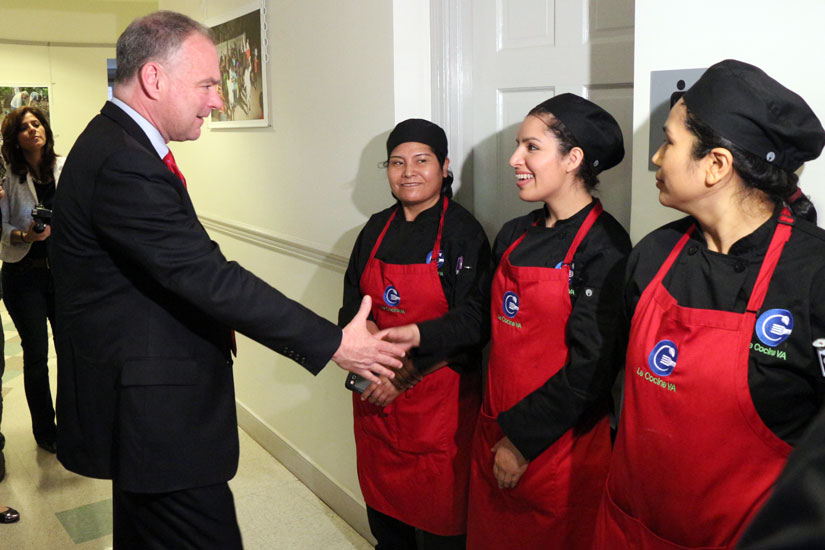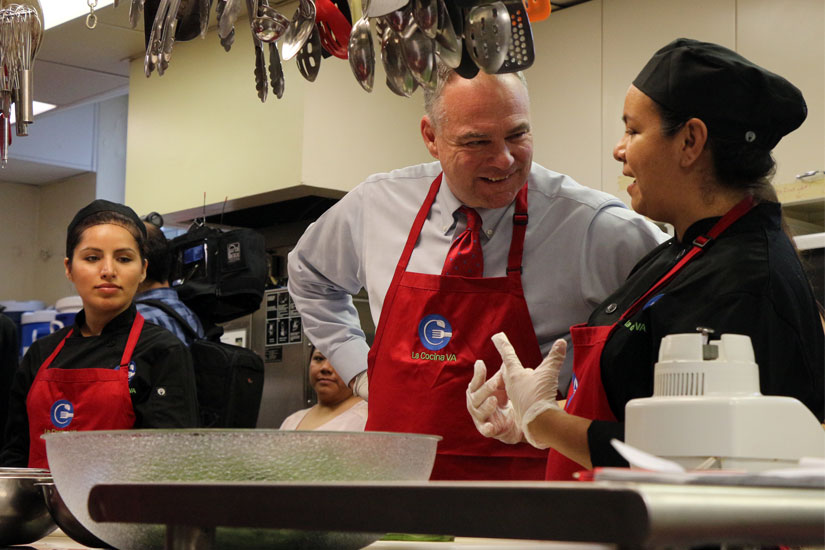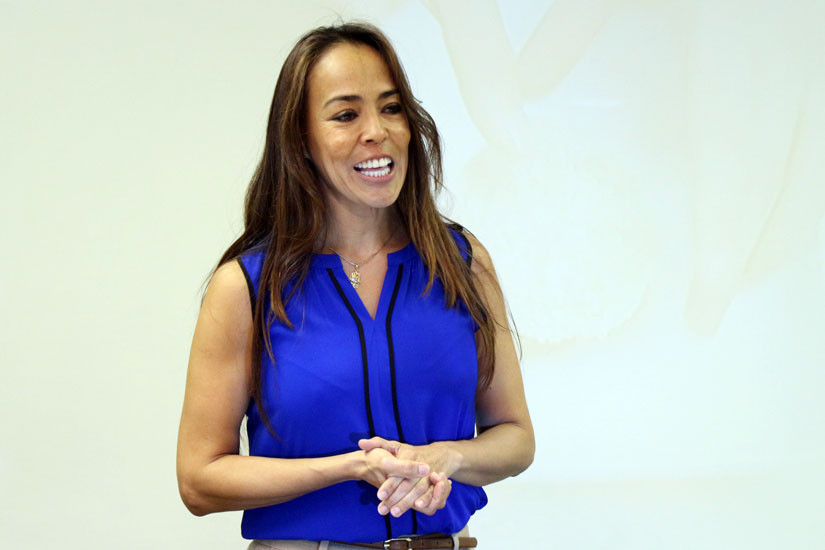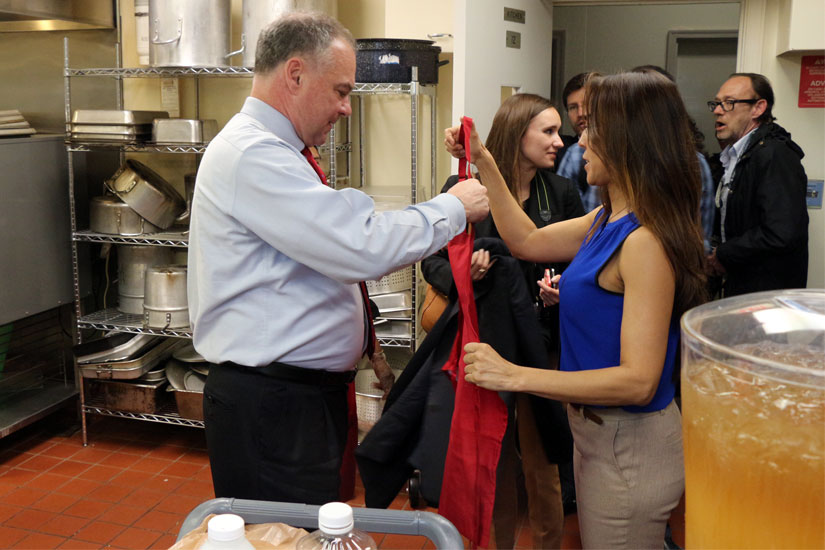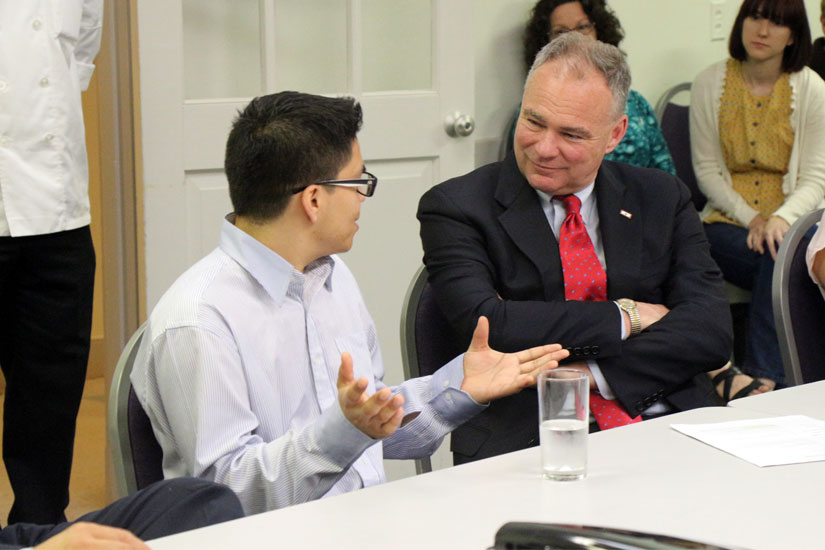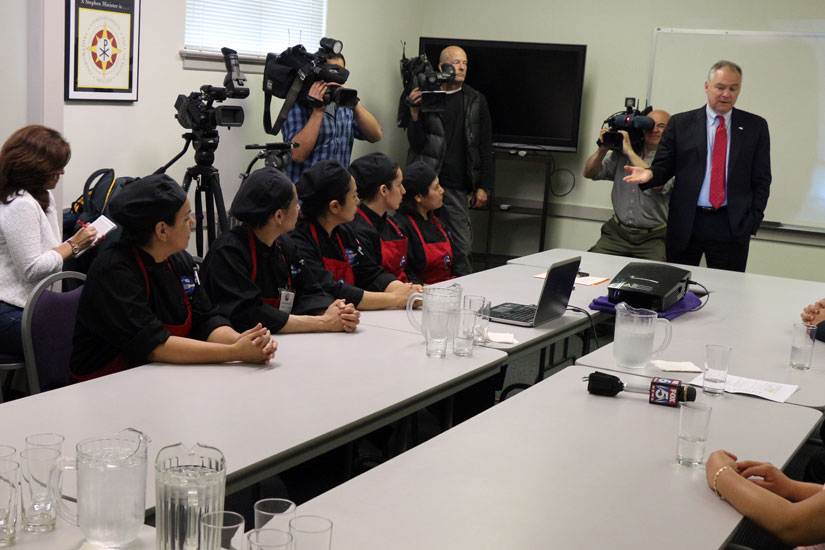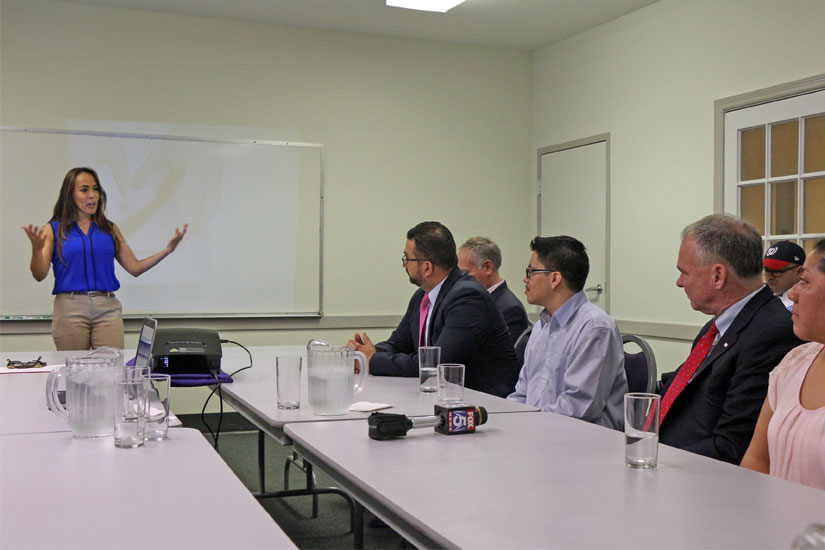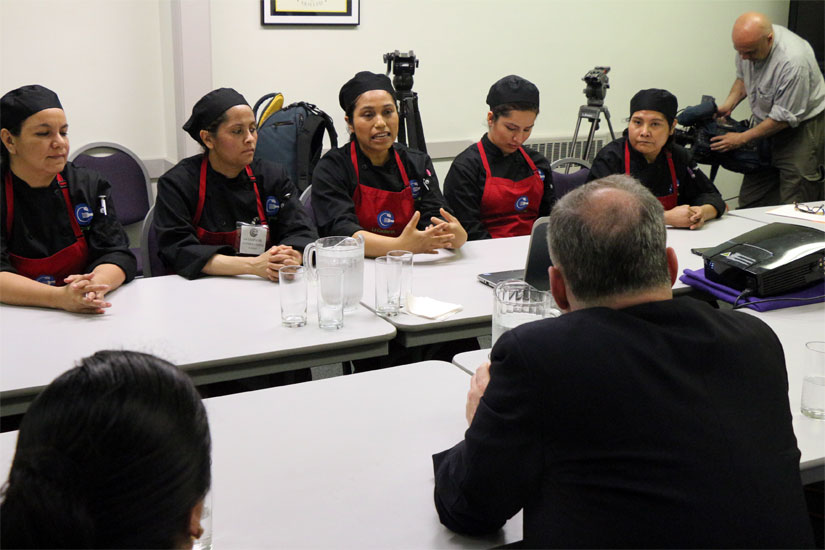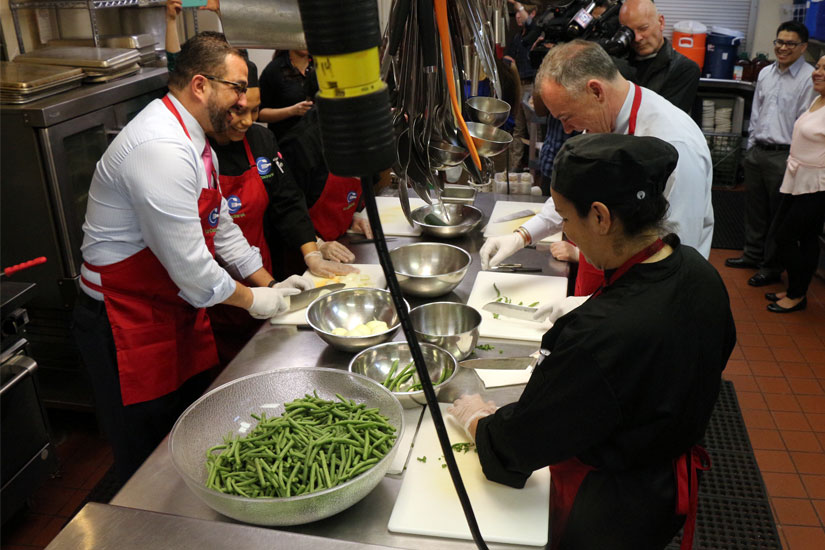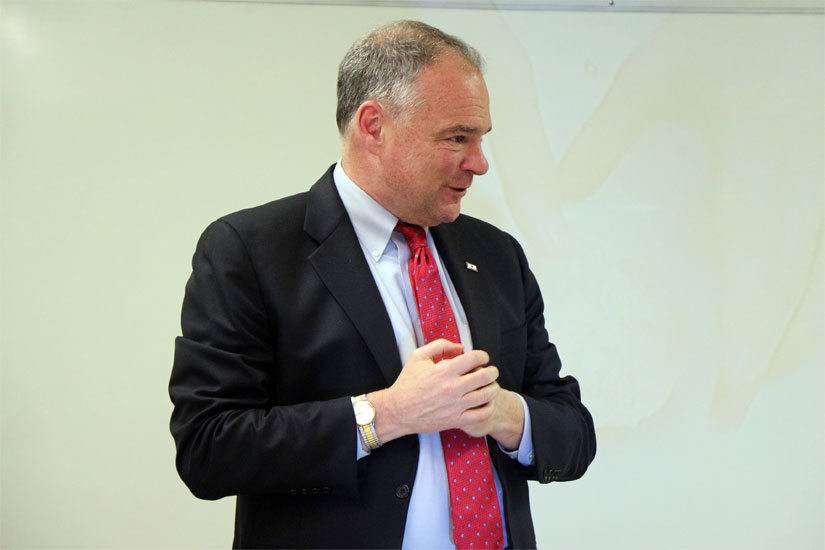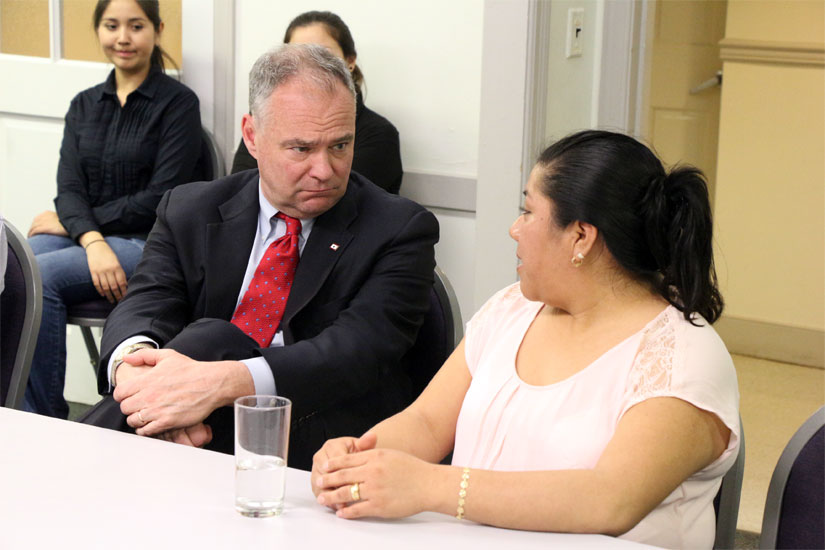Sen. Tim Kaine (D-Va.) visited La Cocina VA yesterday, a nonprofit program that gives Hispanic immigrants bilingual, culinary job training in the basement of an Arlington church.
Below Mt. Olivet United Methodist Church (1500 N. Glebe Road) yesterday afternoon, Kaine — who speaks fluent Spanish after spending a year in Honduras before entering politics — met with the program’s leaders and participants, eager to learn more about the benefits it provides.
“This is an important program for a lot of reasons,” he said. His father was a welder and, when he was in Honduras, Kaine taught welding to the locals. “Teaching students in Honduras taught me a lot about technical education. People need skills you can’t get in the classroom.”
Kaine walked into the building and introduced himself to the program’s five current trainees and head chef, Diego Rojas, a U.S. Army veteran. He also met with graduates of the program, one of whom, Jose Hernandez, now works as a line cook at Le Meridien in Rosslyn.
Hernandez said when he came to Arlington and graduated high school, he was afraid to speak in English because he wasn’t as comfortable with the language as Spanish, and he was teased by classmates for his lack of proficiency.
“Now I’m more confident,” he said. “Now I’m training people in preparing salads and doing well in the kitchen.”
La Cocina not only trains its enrollees on how to work in a commercial kitchen, it also provides language skills to interact with coworkers and customers. It provides job placement services — Whole Foods has recently partnered to offer monthlong paid internships with the potential for a full-time position — and the environment Rojas and Founder/CEO Patricia Funegra cultivate generate leadership skills and confidence.
“This kitchen is like the garage Steve Jobs started in at his parents’ house,” Funegra said. “It’s one big step to get into the industry.”
While they are training, the cooks make thousands of meals provided to low-income families. La Cocina also focuses on health education, both for the trainees and the communities at large; 50 percent of every meal is made up of fruits and vegetables, Funegra said.
“This program is opening up doors I wouldn’t get anywhere else as a Hispanic woman,” one of the trainees said, according to a translator. “When we leave, we will be a voice for others.”
After a 45-minute discussion, Rojas and his trainees took Kaine to the kitchen, where they prepared meals of turkey cutlets, roasted squash and carrots made with turkey stock, plus sautéed onions, carrots and green beans.


